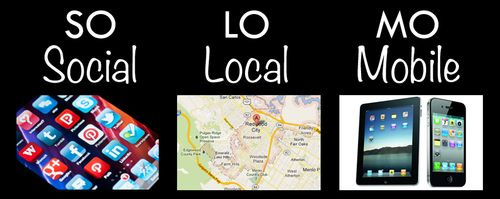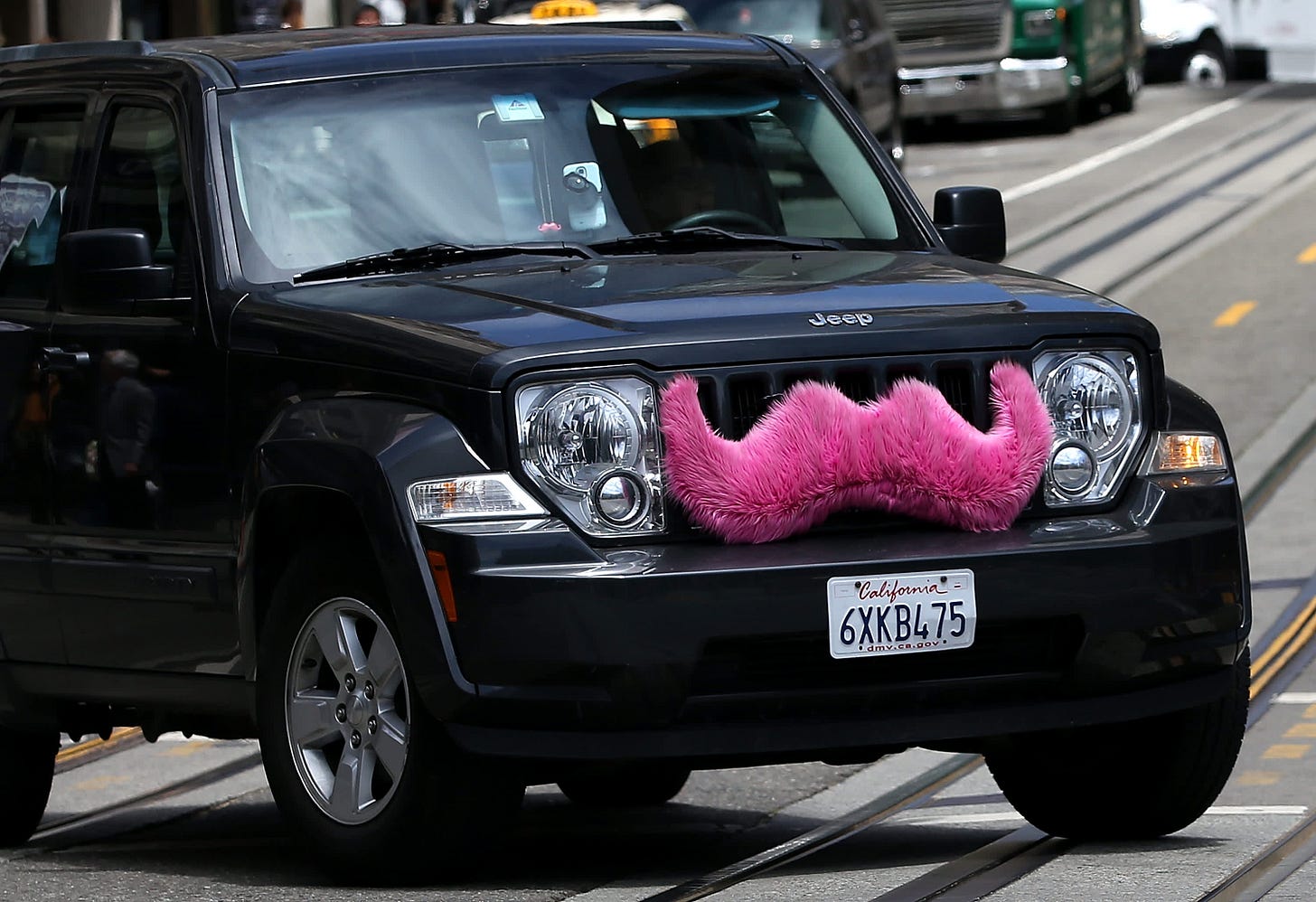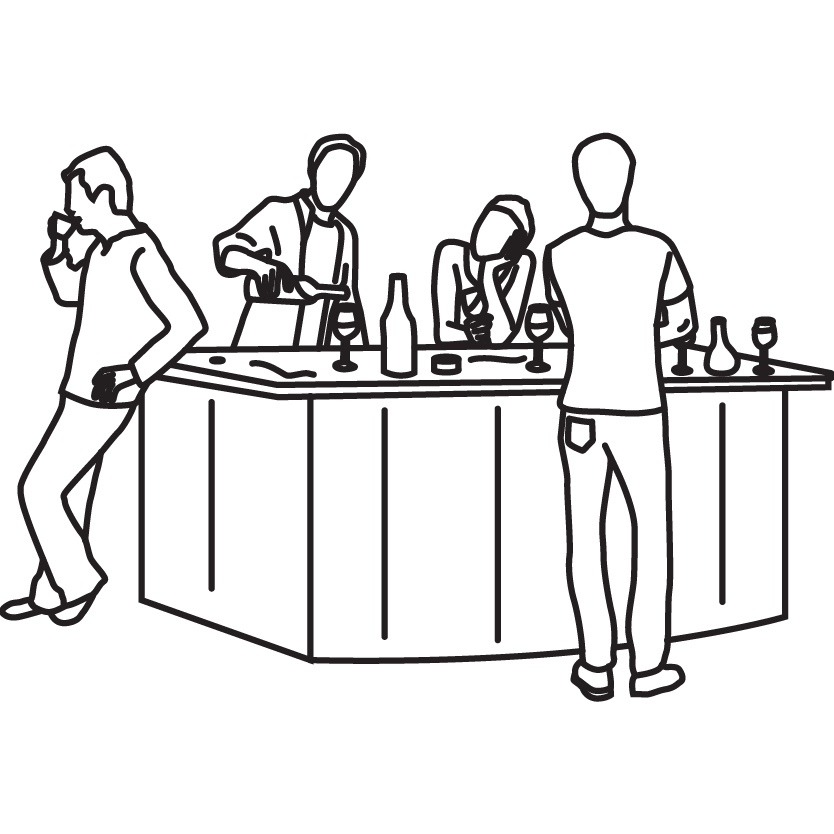Be Brave: Web3, Faux Membership Clubs & Prosocial Behavioral Unlock
Web3 will only live up to its potential when we embrace new behaviors that community buy-in enables.
Cafe Society is Maxwell Social’s Whenever-I-Have-The-Time-To-Write magazine on the intersection of community, society, web3, F&B and more — an anthropological look at the underpinnings of what makes the world tick and how tech is changing it, written by David Litwak (@dlitwak) and the Maxwell team. Maxwell is building a new type of social club in Tribeca, check out the photos on Instagram, if you’d like to apply go to www.maxwellsocial.com and if you’d like to book an event get in touch here.
The past few days I’ve been forwarded a host of NFT bars/restaurants, decentralized membership clubs, and normal (non-NFT) membership clubs that are launching shortly. “Members Clubs Are Having A Moment” The Spectator postulated.
The intention of my friends was kind, a sort of “look you’re onto something with this membership/NFT thing,” so I was surprised that every single project kind of annoyed me, and not in a petty, jealous, threatened way: I was annoyed because I felt these projects were the exact type of projects that gave anti-Web3, anti-membership club types ammo — velvet ropes for the sake of velvet ropes, slapping a monthly fee on a restaurant and calling it a “membership club,” and I felt projects like these actually made my life HARDER, not easier, because smart money looked at them, rolled their eyes, and then discounted the Maxwell pitch.
What’s exciting about Web3 is not slapping a blockchain membership card on top of our existing bar/restaurant service model and making it tradable, it’s the idea that when everyone has a stake, new behaviors can be unlocked — collective ownership of our social spaces can unlock a more collaborative operating model where people can serve themselves.
If you trust your members why waste valuable real estate by dividing the back and front of house?
If you trust your members why not let them pour their own drinks and minimize service costs?
In short, community buy-in can create trust that enables freedom in our social spaces and unlock a completely new business model for community spaces — we can make it possible to launch community spaces that aren’t services businesses.
To put things in context, I think it’s valuable to think about the last “transformative internet era,” the false steps and ultimately successful revolutionary companies that came out of it.
Web2, Airbnb, Uber & The Sharing Economy
The promise of Web2 was a more participatory, social internet. That meant social networks, user generated content, and the phrase “SoLoMo” — Social Local Mobile.
The idea that was that we were now connected to each other at all times through smart phones and social networks made the world smaller, and that was supposed to unleash a whole new wave of innovative services.
The initial companies started in this wave launched with an unsophisticated approach to just make everything social, every website integrated user generated content, recommendations and a FB login — the promise was Lonely Planet but instead of recommendations by experts, your friends or maybe local Italians would tell you where to go!
But these sites were short lived — there were only so many things you wanted recommendations from your friends on and turned out Lonely Planet had already found all the hidden beaches in Sardinia.
The transformation came when entrepreneurs started to realize that a more social and connected world could lead to NEW behaviors and the sharing economy was born — if we’re all connected, there are more opportunities to hold each other accountable, we can trust each other more, and we can transact in completely new ways.
The breakthrough in the accommodation sector was not slapping a Facebook login onto travel booking sites so you could get “recommendations from friends on which trip to book.” The big jump came when the connected, participatory, social nature of web2 allowed us to enable a NEW behavior — staying in people’s homes and Airbnb was born.
The breakthrough in transportation wasn’t when Taximagic slapped an app on top of existing Taxi supply, it was when Uber/Lyft used the increased ability to trust a stranger that a more connected, participatory and social web enabled in order to enable a NEW behavior — jumping in a random person’s car.
Truly transformative businesses use technology to unlock new behavior and create NEW markets.
The big question is what new behavior does web3 actually unlock?
Web3 Unlocks Pro-Social Community Behaviors
What’s “prosocial behavior” you may ask?
Prosocial behavior is a social behavior that "benefit[s] other people or society as a whole", "such as helping, sharing, donating, co-operating, and volunteering". Obeying the rules and conforming to socially accepted behaviors are also regarded as prosocial behaviors.
The story most commonly used to illustrate the lack of pro-social behavior is the tragedy of the commons.
“Commons” were shared green spaces in the center of villages often used for grazing of cattle. When everyone behaves, when there are understood rules and norms that people respect, the commons can support the whole village. But if one user starts using the space too much the grass isn’t able to support all the cattle, the grass dies, and no one can graze their cattle anymore.
Our society doesn’t have a ton of pro-social behavior right now, and I’m reminded of it every time I go to pick up toiletries — while 10 years ago you might have been able to “self serve” off the shelf at a Walgreens, in some areas they’ve literally made it necessary for a staff member to serve you Colgate toothpaste.
But what if you changed the incentive structures so that people could be trusted? What if everyone had an incentive to behave because they had a stake?
What if instead of customers you had members.
Back of House, Community Spaces & The Trust Tax
The current service-centric model of our social spots is by necessity, not desire.
According to Diageo and William Grant, 80% of alcohol sales are off-premise (pre-pandemic) — most people already pour their own drink at house parties, dinner parties and more, demonstrating that we don’t need to be waited on hand and foot at all times.
They faded partially because the organizing principals were out of date — most of us don’t want to hang out with solely our own ethnicity anymore and in big cities the rise of secularism has put many churches out of business.
But the reason they could exist in the first place was that those organizing principals, god or ethnicity, created trust — a feeling you were in it together, with your religious compatriots or your immigrant community, that allowed for a low service high trust model to thrive.
There were huge social consequences for stealing from your community, and that kept most people in line, but today, when the vast majority of your patrons have no vested interest in the success of your business and could easily steal, you need to keep things behind lock and key.
When people don’t take responsibility for their drunkenness you need bartenders to regulate alcohol consumption.
As we wrote about last week, Maxwell is working on building a platform to make it possible to build community spaces instead of service spaces, and part of our insight was that out of the 8,000 square feet in our first spot, 3,000 of it was previously used for storage and food prep, and a similarly sized social club had 5x as much staff as we’re going to have.
It’s a “trust tax” — lack of trust means 50% less usable space and 5x the operational costs!
Be Brave
Most NFT companies or private members clubs right now are basically Taximagic or Booking.com with a FB login button right now — slapping new technology on fundamentally old behaviors for marginal improvements.
In some cases the normal experience is made even WORSE by NFTs — I’ve been vocal about my thoughts on Flyfish club, the “NFT Membership Club” by Gary Vaynerchuk.
A private members experience whose memberships are able to be acquired on the open market, trading the curation criteria of a Soho House or old school country club, however flawed it is, for curation via wealth and only wealth? I’ll take the old model that at least blended SOME sort of personal connection in with your wealth!
But my bigger issue is the bastardization of the word membership — membership should come with special privileges originating from real, genuine, trust.
If once you become a member you can’t do anything different than you could at a non-members spot, and the only real benefit is that well, now you can do that same thing, order food at a restaurant or drinks at the bar, but here at Soho House, it’s not a membership club.
These are faux membership clubs — gated restaurants with an extra monthly fee, facilities with an application process, not communities.
Someone simply realized they could charge for access to the thing you already did, adding an extra velvet rope to convince people there is something desirable inside, but it doesn’t amount to more than a marketing gimmick or a way to monetize high demand.
Which is a shame because Web3 is giving us the tools to behave in new ways, but only if we are brave enough to actually create platforms and models that take advantage of it.
Thanks for tuning in and if you enjoyed this deep dive, subscribe, share, follow David on Twitter, follow Maxwell on Instagram and check out some of our latest posts!
David (@dlitwak), Kyle, Joelle











